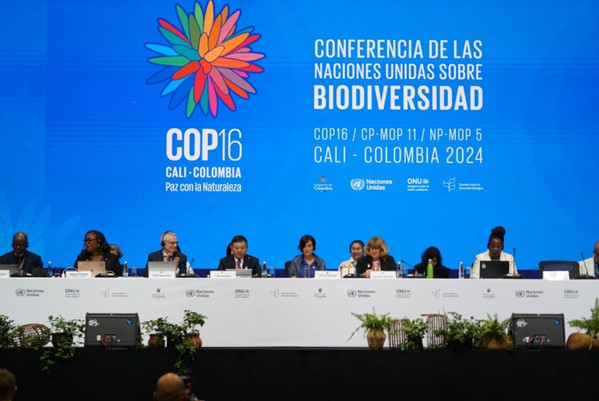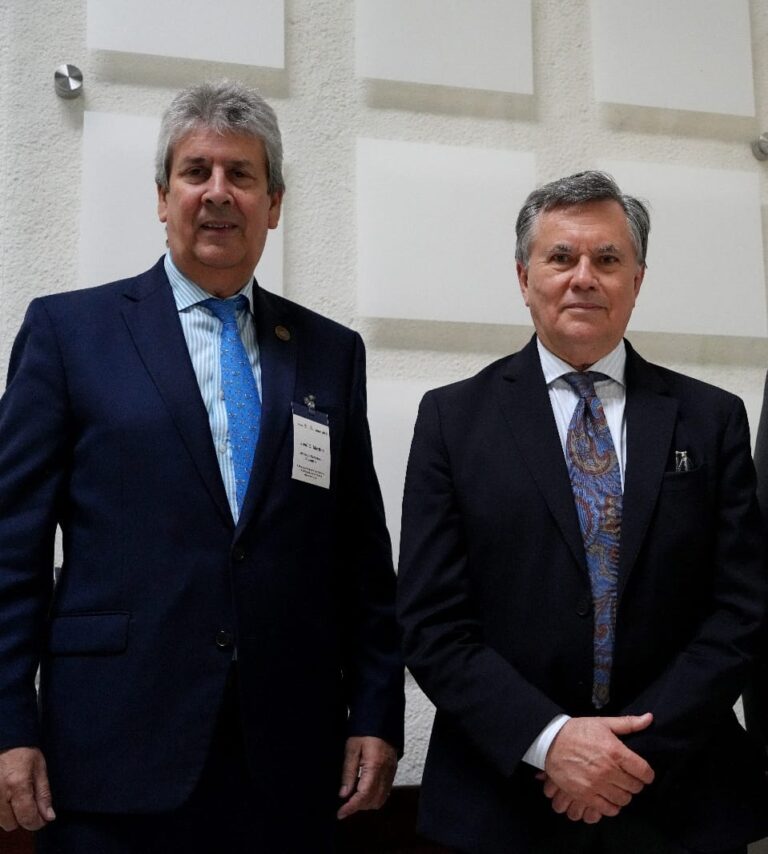IICA representatives took part in the opening ceremony of the conference, which is being held under the theme “Peace with Nature” and was attended by Colombian President Gustavo Petro.

Cali, Colombia, 24 October 2024 (IICA) – The Inter-American Institute for Cooperation on Agriculture (IICA) participated in the United Nations Conference on Biodiversity (COP 16), which brings together representatives from governments and organizations around the world in Cali, Colombia. During the event, IICA highlighted the central role that the bioeconomy and nature-based solutions can play in food security and environmental conservation.
IICA representatives took part in the opening ceremony of the conference, which is being held under the theme “Peace with Nature” and was attended by Colombian President Gustavo Petro.
The Conference of the Parties (COP) is the supreme decision-making body of the Convention on Biological Diversity, which was signed by leaders of 150 countries at the Rio de Janeiro Earth Summit in 1992. This convention promotes sustainable development through a vision that integrates ecosystems and people.
Breno Tiburcio, IICA Representative in Colombia; Muhammad Ibrahim, IICA Director of Technical Cooperation; Pedro Rocha, International Specialist in Biotechnology and Biosafety; and Astrid Pulido, National Specialist in Natural Resources and Climate Change for IICA Colombia, attended the first plenary session of the COP as observers. The meeting was chaired by Susana Muhamad, Colombia’s Minister of Environment, who was appointed President of COP16.
Tiburcio emphasized IICA’s approach to integrating biodiversity conservation and sustainable agricultural production, underscoring the crucial role of agrobiodiversity for the resilience of food systems.
“IICA promotes an approach that integrates biodiversity conservation and sustainable agricultural production, highlighting the role of agrobiodiversity in the resilience and sustainability of food systems. Nature-based solutions and the bioeconomy are key pillars of this strategy, due to their ability to contribute to biodiversity conservation and agricultural development in Latin America and the Caribbean. IICA’s participation in COP16 aligns with its Continental Alliance for Food Security and Sustainable Development in the Americas initiative, which drives policies and capabilities for resilient, inclusive, sustainable, and competitive food systems,” said Tiburcio.
COP16 is organized by Colombia’s Ministry of Environment and Sustainable Development in collaboration with the United Nations Convention on Biological Diversity (CBD). It includes the participation of more than 145 delegations from around the world, as well as international organizations such as the United Nations Environment Programme (UNEP), local actors, Indigenous groups, and the private sector. The main topics discussed include conservation, ecosystem restoration, and financing for environmental action.

“We must work together based on principles, and for that, we need to be fully transparent. We must deliberate sincerely. It is difficult to agree on certain elements, and this is to be expected in these multilateral processes, but we must be willing to reach convergence formulas. This will be fundamental for the success of this conference,” stated Susana Muhamad, President of COP and Minister of Environment and Sustainable Development of Colombia.
For her part, Astrid Schomaker, Executive Secretary of the Convention on Biological Diversity (CBD), said, “The global community must seize this moment to ensure that biodiversity is not only preserved but also restored and valued for the crucial role it plays in sustaining life on Earth. COP16 is an opportunity to move from words to action. The future of life on our planet depends on it.”
IICA is participating in COP16 in the negotiations for the Cartagena Protocol on Biosafety and the Nagoya Protocol on Access to Genetic Resources. These negotiations are crucial for defining regulatory frameworks that promote the responsible use of biotechnology and equity in the access to and distribution of benefits derived from genetic resources.
More information:
Institutional Communication Division.
comunicacion.institucional@iica.int











